|
By 1981 Trevor Horn had accomplished a lot as a musician. while playing bass in Tina Charles backing band, Horn recruited two of its members, Geoff Downes and Bruce Wooley, to do a 'Toto' and form a studio band called Buggles to record their own songs. After they wrote the song "Video Killed The Radio Star" together, Wooley left to form The Camera Club with, then unknowns, Thomas Dolby and Matthew Seligman and recorded his own version of the song. Of course the slickly produced version by Buggles was an international hit, the video for which launched MTV almost two years later. Then, in one of the oddest career left-turns ever documented, Buggles were tapped to replace the departed Jon Anderson and Rick Wakeman in Yes. This lineup recorded Drama, a strange album that mixed heavy metal with new wave, electronica and progressive rock. Trevor Horn (foreground) and Geoff Downes in their Buggles days A world tour followed which was successful in America but was savaged in their home country of England, mainly due to Horn's struggles with matching Anderson's high tenor. Yes broke up and Horn and Downes began recording a second Buggles album, during which Downes bolted to join his ex-Yes band mate Steve Howe in the massively successful Asia. Horn completed the album with session musicians and its failure potentially signaled the end of Horn's adventures in modern recording. So it was 1981 when Horn's wife and business partner, the late Jill Sinclair, suggested that Horn would only ever be a second rate artist but, as a producer, he could be a world beater. Sinclair's prescience proved uncannily accurate as Horn, using a series of fledgling bands like Dollar, ABC, Frankie Goes To Hollywood, Seal and non-musician Malcolm McLaren as his canvas, dreamed up great swaths of the eighties as we know it. Horn in his natural environment during his heyday as a producer Now, almost twenty years into the new millennium, there are no new hills to conquer, no more young hopefuls beating down his door to be synthesized into platinum superstars, and Horn has spent a lot of time looking back on his amazing career, performing Buggles reunion shows and playing bass in The Producers, a band similar in concept to The Rock Bottom Remainders which featured only authors like Stephen King, Amy Tan and Scott Turow. He produced another Jon Anderson-less album for Yes featuring mostly songs he and Geoff Downes had written for the band in 1980 - only to go back a few years later to remove their stand-in singer's voice and add his own. Horn's latest venture is another look backwards. The long lead time between the announcement of Trevor Horn Reimagines The Eighties and its release in the US had me salivating with anticipation for months. Unfortunately, now that it's finally here, I'm suffering from cotton mouth. Trevor Horn has reimagined the eighties as a bleak, post-apocalyptic musical landscape where once bouncy, spirited songs are reduced to funeral dirges or, worse, pared with singers whose particular gifts are ill-matched to the song they've been asked to sing. The first clue that something is amiss is the choice of Robbie Williams to sing Tears For Fears' "Everybody Wants To Rule The World." Williams' disinterested, flat delivery made me rush to listen to Curt Smith's original plaintive and hopeful approach, just to clean my palette. It gets worse before it gets better. English singer Gabrielle Aplin is forced to warble over a deconstructed, plodding arrangement of Bruce Springsteen's "Dancing In The Dark" that even Theresa May couldn't dance to. The less said about Seal's take on Bowie's "Ashes To Ashes" (the song that essentially announced the eighties) the better. With Seal The combination of Marillion singer Steve Hogarth and an overblown orchestral arrangement of Joe Jackson's "It's Different For Girls" makes the track sound like a rejected song from Yentl. Horn and Rumer turn "Slave To The Rhythm" (once a smash dance hit for Horn and Grace Jones) into a companion to Kate Bush's "This Woman's Work" where the rhythm in question might as well refer to contractions. Setting aside the pointless reading of Duran Duran's "Girls On Film" sung by All Saints, perhaps the most egregious reimagining on the album is former Spandau Ballet singer Tony Hadley's doomed attempt at Tina Turner's "What's Love Got To Do With It?" Why?! To be fair, there are a handful of tracks that work. Frankie Goes To Hollywood's "The Power Of Love," sung by Matt Cardle, lends itself nicely to Horn's dramatic approach, sounding like a contender for the next Bond Film. Dire Straits' "Brothers In Arms" is a song that transcends the eighties and, as performed by Simple Minds, is hard to ruin. My two favorite tracks on the album are sung by Horn, himself. "Owner Of A Lonely Heart," the Horn produced number one hit by Yes is stupid fun, especially when the samba kicks in before the guitar solo. Horn's reduction of A-ha's bouncy synth anthem "Take On Me" to a slow romantic ballad actually works beautifully. More like those would have been nice.
0 Comments
Concert review by Eric Sandberg — The Richard Thompson Trio at the Teragram Ballroom February 20, 2019 Richard Thompson plays a Gibson SG on a rousing cover of The Sorrows' "Take A Heart" I like Richard Thompson when he's angry...at least angry when he's writing songs and ripping guitar solos on a new record. Thompson's most recent album 13 Rivers was written and recorded amid the end of his second marriage and could well have been titled Shoot Out The Lights II. Each of the albums thirteen songs is sung in the first person - the lyrics, personal, often harrowing, occasionally spiritual. The guitar playing throughout sports a ferocity not heard on a Richard Thompson record in a while. If the Richard Thompson who appeared on the Teragram Ballroom stage Sunday night with his "very large trio" was angry, you wouldn't know it. But who can really tell? Thompson is a consummate showman who leaves his dark side in the dressing room. I wouldn't say he was warm but he was certainly jovial and partook in the kind of banter only Englishmen of a certain age can deliver, even cribbing a classic line from the Bonzo's Neil Innes "I've suffered for my art, now it's your turn." When an audience member waved a copy of the 13 Rivers CD at him he quipped "So you're the one still buying CDs." When another patron expressed his enthusiasm for the announced next song Thompson chided "I'm so glad this meets with your approval. It is all about you after all." Thompson began the lengthy set with "The Bones of Gilead" a polyrhythmic tour de force from 13 Rivers that harks back to his Capitol Records era. Thompson's long time guitar tech Bobby Eichorn sat in (literally) on this and many tunes throughout the evening providing strong rhythm support. Left to right: Bobby Eichorn, Richard Thompson, Michael Jerome Thompson front loaded his set with several of the strongest songs from 13 Rivers, promising he would get to the "classics" eventually ("about 2 AM") but, to my ears, these songs stand up with Thompson's venerable fifty year catalog nicely. In previous years Thompson served as his own opening act, performing a set of acoustic numbers before being joined by his band. His current approach is to integrate the acoustic numbers throughout the set which created a satisfying flow to the proceedings. Thompson's bassist Taras Prodaniuk clearly came from the factory that makes long, lanky, lantern-jawed bass players, who know the proper way to stand, delivering every note needed but not one note more. Drummer Michael Jerome is a marvel. His picture should be in the dictionary next to the word 'drummer.' Despite standing directly in front of a living legend I found it hard to take my eyes off Jerome. From the perfect flat set up of his kit, to the way he sat - his controlled ferocity - he has clearly been instructed by the best and paid attention. The rest is his gift. Jerome's drum riser seemed more like a trampoline as it appeared his drums could tumble off at any moment. Thompson, Jerome and Prodaniuk raise the excitement level with a fiery extended jam on "Can't Wait." One of the shows highlights came early with "Guitar Heroes" in which Thompson pays homage to and emulates the playing styles of Django Reinhart, Les Paul, Chuck Berry, James Burton and Hank Marvin, high praise from a guitarist who has an equally original and immediately recognizable style of his own. As promised, Thompson packed the second half of his set with the classics, visiting his old band Fairport Convention with "Meet On The Ledge" and "Genesis Hall," "Wall of Death" from Shoot Out the Lights, a lovely acoustic performance of "1952 Vincent Black Lightning" and his standard set closer, the rousing "Tear Stained Letter." The first encore featured Richard on acoustic guitar singing "Beeswing" followed by the very welcome last second substitution of perhaps his most beautiful song "Dimming of the Day." All photos by Eric Sandberg The full band returned for one final encore performing another future classic from 13 Rivers ("Pride") before Thompson surprisingly donned a black Gibson SG for a rocking cover of "Take A Heart" originally by 60s British Beat band The Sorrows. There were a few moments in the show where Thompson really seemed to be enjoying himself. He occasionally flashed a toothy, self-satisfied grin, too fleeting to capture on camera but reminded me of this: Acoustic finger-stylist Ryley Walker opened the proceedings with an arresting mixture of de-tuned John Fahey and John Renbourn style drones on a beat up Guild that belied the shimmering sounds emanating from it. Walker managed to hold on to the sparse early crowd with his wit and talent despite making blasphemous comments about the merits (or lack thereof) of Syd Barrett's solo work Ryley Walker, looking a bit like Ed Sheerhan, but exhibiting far more talent.
Note: this review was completed with invaluable suggestions from Michael Berman Concert review by Eric Sandberg — Rosanne Cash with the John Leventhal Band The Soraya Center Center for the Performing Arts, February 17, 2019 L-R: John Leventhal, Rosanne Cash, Matt Beck, Sam Phillips, Dan Reiser, Zev Katz, (Photo from Mrs Lev's Instagram) Rosanne Cash is an American original. It's not often that one can bestow such a label upon the offspring of an icon ("Julian Lennon is a British original" wrote no one ever), but in a long career as a singer, songwriter and author Cash has earned it. She was born a Memphis girl, raised a Valley girl and adults as a New York City sophisticate. Eight years after helping inaugurate it, Rosanne Cash and her band, led by husband/bandleader/guitarist John Leventhal, returned to the Younes & Soraya Nazarian Center For The Performing Arts (nestled in the campus of Cal State Northridge) to perform a mesmerizing set of numbers from her excellent new album She Remembers Everything, along with a selection songs from her Grammy winning trio of Americana albums, The River and the Thread, The List, and Black Cadillac. The beautiful and multi-tiered Soraya theater was packed with an appreciative audience that included famed producer Don Was and legendary Hot Band guitarist Albert Lee as Cash and band took the stage and immediately filled the room with an ethereal sound that resembled country music but suggested something more. Albert Lee flanked by Multi-instrumentalist Kevin Barry (left) and guitarist John Leventhal (Photo from Mrs Lev's Instagram) Cash's voice is powerful and a little quirky, no one sounds quite like her. It's the kind of voice capable of carrying an entire evening of slow and mid tempo songs (I'm guessing they don't get booked to play too many hoedowns) but the songs are beautiful, emotional and powerful. On their own they tell stories but hearing Rosanne Cash tell the stories behind the songs before she sings them is an extra special treat. She talked about her dad and the list he gave her of one hundred essential American songs, and told of the strength of her grandmother who toiled and loved her family in spite of her no account husband, and she cast back to her Cash ancestors who fought on both sides of the Civil War. The band, consisting of Cash's husband John Leventhal on guitar and piano, newcomer Matt Beck on keyboards and mandolin, veteran session and road warrior Zev Katz on bass, brush master Dan Reiser behind the kit and Cash's secret weapon Kevin Barry on guitar and lap steel, settled into a virtually flawless performance supporting these exceptional songs, including a brilliantly arranged cover of The Beatles' "Things We Said Today" and Billie Gentry's "Ode To Billy Joe" both of which allowed me to hear these songs in a different light. Kevin Barry gives David Lindley and Greg Liesz a run for their money on the lap steel and he played his boss to a draw on a breathtaking extended Stratocaster duel that nearly brought down the house late in the show. But none of this could overshadow the woman at center stage as Rosanne Cash commands attention with her voice and and poise. The joy she exhibited as she brought her friend and collaborator Sam Phillips to the stage to sing a couple of songs with her was sincere and contagious. Most importantly for a veteran artist, she was able to play a healthy selection of numbers from her newest album without losing the audience for a moment which is a clear indication that her muse remains undiminished. https://www.rosannecash.com/tour |
CategoriesAuthorsEric Sandberg: My true opinion on everything is that it's splunge. Archives
December 2022
Categories |
Proudly powered by Weebly
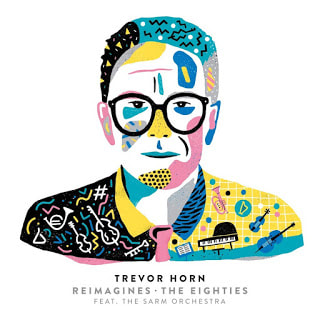
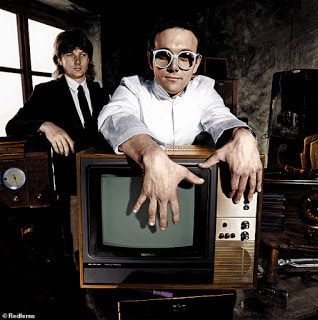
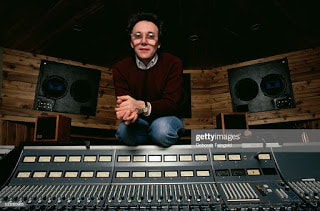
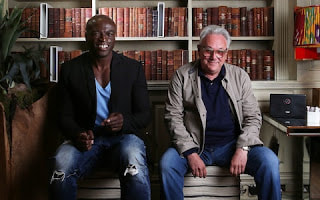
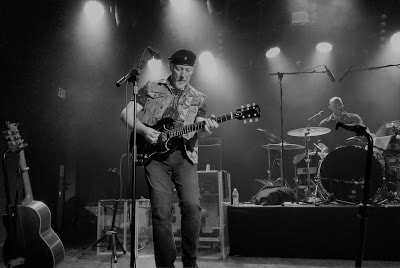
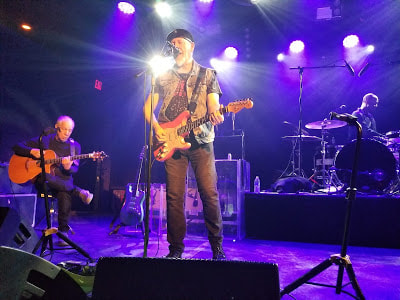
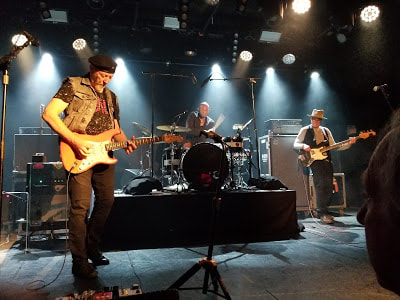
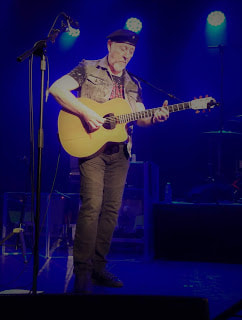
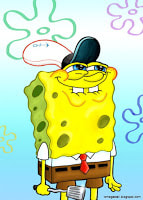
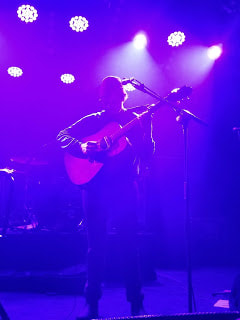
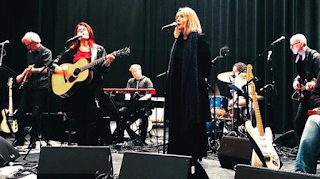
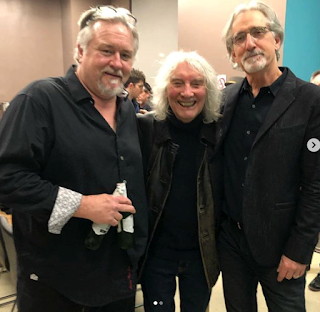
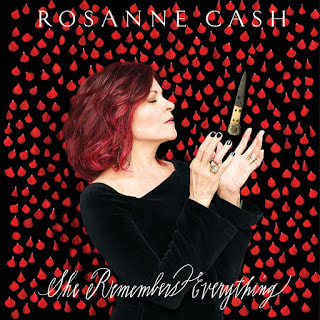
 RSS Feed
RSS Feed